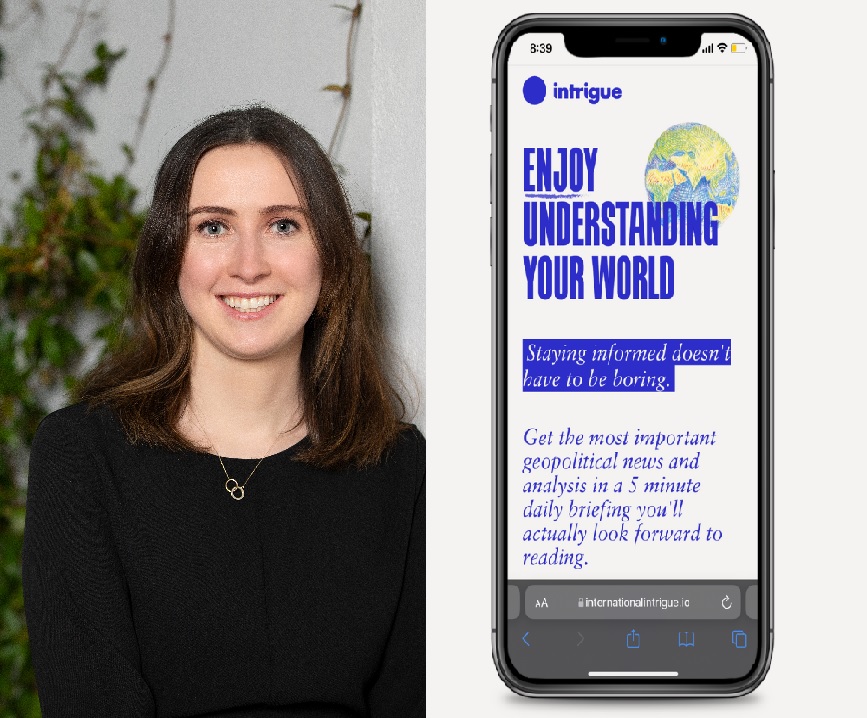 If the pandemic has reinforced anything, it is that life throws us unexpected, life-altering curveballs. How we face these challenges will determine our long-term success, says Marshall Institute Visiting Fellow Dr Christian Busch.
If the pandemic has reinforced anything, it is that life throws us unexpected, life-altering curveballs. How we face these challenges will determine our long-term success, says Marshall Institute Visiting Fellow Dr Christian Busch.
This article first appeared in Fast Company Magazine
Watch Christian Busch in conversation online with LSE’s Connson Locke (10th Sep 2020)
Now that we have accepted how COVID-19 has forever changed the world of work, it’s time to accept how we need to change along with it. Our current uncertainty demands that we rethink everything from the way we network and job hunt, to how we meaningfully connect, grow professionally, and build cohesive corporate cultures without water cooler moments and “get-to-know-you” lunches. Similarly, with entire industries cratering, job security a distant memory, and life in the “new normal” anything but, mastering the new rules of work requires the ability to not only survive change, but thrive in it.
That is why the most important skill needed to ride this wave of change rather than get crushed by it is this: building a muscle for the unexpected so that uncertainty becomes a welcome source of opportunity—and a mechanism for sustained success.
The new rules of work
Thankfully, a close look at some of the most prominent business leaders and organizations that consistently spin fortuitous outcomes out of uncertainty offers science-based guidance on how to cultivate this more resilient, “change-receptive DNA” in individuals and organizations alike. The secret is that each intuitively “cultivates serendipity”—or the smart luck that happens when we embrace the unexpected as a source of potentiality, while increasing one’s receptivity to opportunity, wherever or however it might strike.
Developing a muscle for the unexpected means that luck ceases to be a passive force that happens to us, but rather is one that we can grasp, shape, and hone. Like a muscle, this mindset can be strengthened over time to better position ourselves for success, thereby making us agents of our own “smart luck.” Following are a few immediately actionable ways how:
Serendipity spotting and art of reframing
The human desire to control everything is one of the reasons why our inability to plan much of anything right now is so stressful. A challenging but important aspect of cultivating serendipity is accepting that we cannot plan or know everything. Accepting imperfection as part of life allows us to more easily reframe situations so that where others might see a problem (say, unexpected budget constraints), you see an opportunity (making the best out of whatever resources are at hand), thus allowing more creative outcomes to emerge.
In companies, practices such as serendipity spotting can be effective. For example, in meetings we can ask, “What surprised you last week/changed your assumption?” “What did you learn from your response?”
That’s also where rituals such as “post mortems” or “project funerals” come in, where people openly and frequently talk about ideas that did not work out. Importantly, this is not about celebrating failure–it’s about celebrating the learning that comes from unexpected places. Oftentimes, serendipity happens when people “coincidentally” realize that an idea that didn’t work in one context, might work in another.
Embrace the unexpected by unlocking the possible
COVID-19 has hit many of us hard—be it the internship that fell through, the carefully programmed career path derailed, or the seemingly unbearable weight of professional insecurity. And yet when tracing back the careers of some of the world’s most successful people, a clear pattern emerges: Most of them had many setbacks but turned them into new potential avenues for growth. Quite literally, one door shuts and others open—but only if we can see it.
Research shows that we often underestimate how probable the unexpected is, causing us to treat our careers as linear and controllable despite the fact that even during “normal” periods they are often filled with fortuitous twists and turns. Who hasn’t presented their CV as if their life was a coherent, rationally organized plan, or their idea as having been rigorously derived from fact rather than a gut feeling? The key right now is to not over-define a particular career path, problem, plan, or outcome lest we limit what is possible. For example, asking your team to “reduce costs” restricts their field of possible solutions. However, asking them to help think of ways to “make the company survive” will likely inspire more innovative solutions—and demonstrable results.
Seed your own serendipity: the (welcome) death of the dead-end question
One of the easiest adjustments to make along the career path to serendipity is asking better questions, and being open to exploring unexpected answers. When meeting someone new during these uncertain times, the autopilot response of “So, what do you do?” tends to put the other person into a box that is hard to get out of. A better way to position ourselves for smart luck is to ask more open-ended questions, such as “What did you find most interesting about . . . ?” or “What is your state of mind?” Such questions open up conversations that might lead to more meaningful—and often serendipitous—outcomes.
But what happens if we get the dreaded question ourselves? There are ways we can set hooks—using memorable or engaging talking points—to open ourselves to serendipity. When Oli Barrett, founder of multiple businesses in London, meets new people, he casts several hooks that enable potential points of commonality. His response to the “What do you do?” question is something along the lines of, “I love connecting people, I set up a company in the education sector, and I recently started thinking about philosophy, but what I really enjoy is playing the piano.” This reply includes at least four potential serendipity triggers: a passion (connecting people), a job description (running an education company), an interest (philosophy), and a hobby (playing the piano). If he just responded, “I am in education,” the opportunity for others to connect the dots would be small. This way, he allows others to pick and choose the hook that relates to their life and makes it more likely that serendipity will happen.
Making more meaningful connections in a virtual world
One of the most daunting—and depressing—aspects of our post-COVID-19 world is the isolation that comes from being unable to connect in person. The good news is that technology easily fosters serendipitous networking from home. A low-risk strategy to expand our network and nurture the conditions for opportunity is “setting serendipity bombs.”
This can include writing honest speculative messages to people we admire (for example via LinkedIn InMail) to share how they have already shaped our trajectory to open up a conversation about how they can be a part of our future journey. Or following professionals that you respect on Twitter and making a point of providing thoughtful, relevant commentary on what they have to say.
The silver lining in a serendipity mindset
The societal and workplace challenges brought about by COVID-19 are considerable, and many are likely here to stay. A serendipity mindset is not designed to make these problems go away, but rather to give us the skills to find opportunity—and importantly, delight—out of the unexpected.
This way, the answer to “what’s one silver lining you’ve found in this pandemic” could be, “I am setting myself/my business up for serendipity.” For those eager to thrive in the workplace of tomorrow, that’s exactly the kind of change we need.
Dr. Christian Busch is a professor at New York University, where he directs the CGA Global Economy Program and teaches purpose-driven leadership, innovation, and entrepreneurship. He is a visiting fellow at LSE’s Marshall Institute, and author of The Serendipity Mindset: The Art and Science of Good Luck. More of his work can be found on his website or on Twitter @ChrisSerendip.






I’m very happy to discover this page. I need
to to thank you for ones time due to this fantastic read!!
I definitely appreciated every part of it and i also have you bookmarked
to look at new stuff in your blog.